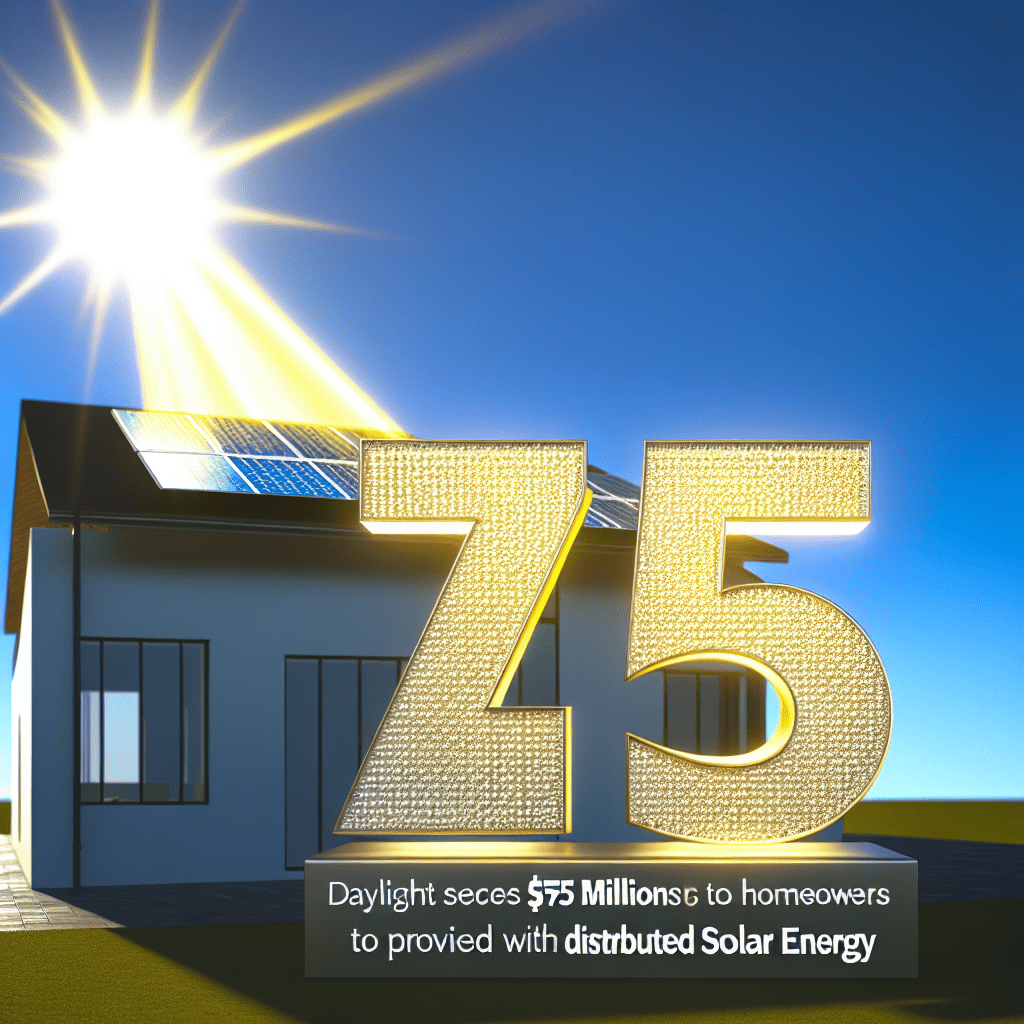Daylight, a decentralized physical infrastructure network (DePIN) initiative aimed at establishing a distributed solar energy grid, has secured $75 million to enhance its solar coverage across the United States.
Daylight provides solar energy as a subscription service, eliminating the substantial upfront expense of purchasing and installing panels and batteries, which can exceed $30,000. The project’s testnet was launched in 2024.
The network earns revenue from its subscription-based energy service and by supplying excess energy back to the power grid. Customers benefit from this by earning “sun points” for their contributions to the decentralized solar grid, with plans to introduce a token in the future.
The funding round features venture capital firms such as Framework Ventures, a16z Crypto, Lerer Hippeau, M13, Room40 Ventures, EV3, and Turtle Hill Capital, as stated in an announcement from Daylight.
DePINs demonstrate how decentralized technology can provide tangible real-world applications by aligning customer and business interests to create resilient, community-owned infrastructure that parallels the established centralized system.
Related: SEC clears DePIN tokens as ‘fundamentally’ outside jurisdiction
The current energy grid can’t accommodate high-performance computing demands
Data centers powered by artificial intelligence and other high-performance computing facilities, such as cryptocurrency miners, require substantial energy, putting pressure on the power grid.
Increased demand from the tech industry may also elevate consumer prices. Wholesale energy costs near data centers have skyrocketed by 267% since 2020, according to Bloomberg.
AI training and the centralized data centers facilitating AI operations could potentially initiate a global energy crisis, observed Greg Osuri, founder of Akash Network, an open-source marketplace for computing power.
The remedy is to decentralize the data center industry by sourcing computing power from distributed avenues, including consumer-grade PCs with graphics cards and enterprises utilizing industrial-grade processors.
“Once incentives are defined, this will flourish like mining did,” he stated to Cointelegraph in September.
Major tech companies such as Google, Amazon, Meta, and Microsoft are already investigating alternative energy options to power their AI data centers and lessen their dependence on the electrical grid.
In June, Amazon secured a contract with Talen Energy for 1,920 megawatts (MW) of nuclear energy for its AI data centers and service facilities in Pennsylvania.
Magazine: The blockchain projects making renewable energy a reality

